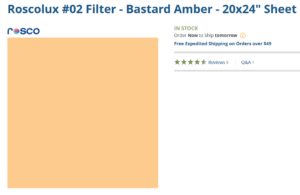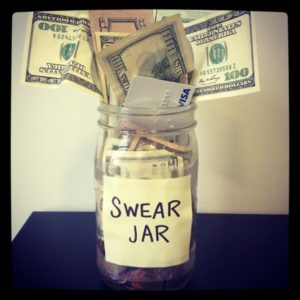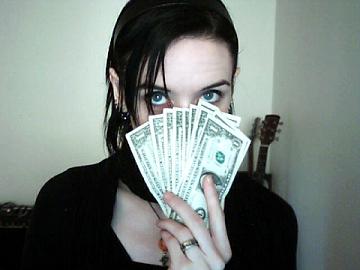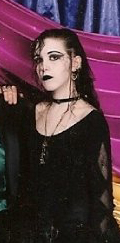If you haven’t already, please read the introduction post. That will give you context for this page.
First, in case it hasn’t come up for you anywhere before, I’m going to suggest you read this explanation of what we mean when we talk about spoons in the context of illness and personal capacity. I will surely mention spoons, but I won’t be explaining the theory of spoons. You might also find this post on different types of spoons interesting, or at least a bit helpful in understanding this post.
Though not the last item on the Not Ashamed list, because I wrote a few things out of order, this is the last Not Ashamed essay I’m writing and publishing. As a fan of personal essays (at least when I’m the one writing), I’ve mainly enjoyed this. I love both the time spent in introspection and self-consideration, as well as the time spent writing. Fortunately, this looks to be a long post, so you will feel like you totally got your fill of me. Heh!
This particular post has been rewritten more times than any other, and I hope that I’m still comfortable with what I choose to say here after I publish.
Some context: I feel a bit uncomfortable writing about this because I know people whose invisible illnesses seem more impacting and unpleasant than mine. So, let me be clear that this isn’t a “who’s most ill†contest or anything like that and that, at least from my perspective, I’ve got it relatively easy on this count. However, the internet is full of posts by people with invisible illness, and you can google those and have a chance to put yourself in their shoes if you feel like that’s useful. (I, of course, feel like it can help us be more compassionate to do such things, so I’m voting that you do.)
I also want to note that I’m uncomfortable writing about this because it rubs up against my desire never to give myself victim status, as well as the fact that one of my invisible illnesses isn’t something I really consider an illness (autism). It is too easy, it seems, to view yourself as ill and let that drop you into a mire of unhappiness and victimisation and so forth. However, I also feel like, at least for me, part of my learning curve has been to figure out how to be not-typical in a world that mainly makes token efforts to appear inclusive. And part of that, one of the hardest parts, has been getting myself to learn to work within the framework of my actual capacity rather than pushing past that, which is unhealthy and can make things worse. Sometimes, for me, thinking of even the things I wouldn’t change (like autism) as an invisible illness helps me to look for more compassionate approaches to life. If I had a brutal case of the flu, I probably wouldn’t berate myself for not managing what “normal†people do, nor would I actually push myself to even try to do things that are clearly just going to keep me sick or that are clearly outside my capacity. It’s not an exact parallel, but it’s one of the main reasons (the other is for solidarity with people who, I can see, have concerns similar to mine) that I don’t try to completely reject this label.
With all the discomfort, I’ll not ignore my own privacy issues; I’m not going to give you a list (though you can look at the Not Ashamed list and figure that being autistic and bi-polar go on that list). In reality, my approach is that I don’t generally care to talk about my limits outside of specific moments where I’m trying to honour my body or mind’s atypical needs and limits.
Okay. I think the last bit of context-giving is to just paste in some stuff from this page on a site that promote Invisible Illness Awareness Week, because I know some of you won’t go looking for this information (though it would be great for you to read that page; it’s full of really interesting and eye-opening stats on invisible illness). From that page:
- Approximately 96% of people who live with an illness have an illness that is invisible. These people do no use a cane or any assistive device and may look perfectly healthy. (2002 US Census Bureau)
- About one in four adults suffer from a diagnosable mental disorder in a given year.
- 9 million people are cancer survivors with various side effects from treatment who may feel as though they have a chronic condition.
- Current statistics on autism indicate that more children will be diagnosed with autism this year than cancer, diabetes, Downs Syndrome and AIDS combined, approximately 1 in 150 children.
So, since it’s not clear from those bullets, I want to point out that the cold you are discreetly treating isn’t an invisible illness. Invisible illnesses are chronic; they’re not going anywhere. Some of them will progress and result in an illness no longer being invisible (my mum’s Multiple Sclerosis was an invisible illness until it progressed to a point where she needed assistive devices). They can have range, from the chronic insomnia that others think of as just a hassle (though even science will tell you it’s much more than that) to something famously painful like lupus, but all of them have an impact on quality of life.
But the invisibility causes problems. You see, if people can’t see that you have an illness of some kind, they assume that you can do all the things they consider reasonable for a typical person. And that includes assuming you can do those things as frequently and to the same extent. If your illness isn’t visible, people can get Really Very Nasty when you fail to live up to their expectations. Even if you tell them that you’ve got something happening that makes you not-actually-typical.
As far as I can tell, the nastiness comes from two places:
- They can’t see your illness so they think you’re probably lying. It’s not that you don’t have the spoons; it’s that you are a liar.
- They think you are just being lazy, using something they can’t even see as an excuse for special treatment.
I know people who lie or exaggerate, but I know far more people who push themselves way past an actual healthy point just trying to live the life they want or trying to keep from being treated poorly by other people. I’ve had times that I was out of spoons for weeks, a complete physical and mental mess, but I still kept pushing because I hated feeling limited and because feeling limited and having the scorn of people who claim to love you piled on is a seriously miserable way to live. (And no wonder there are studies that show that, for both those with visible and invisible illnesses, there are high divorce rates and other markers of troubles with friendships and romantic relationships.)
In an effort to be physically, mentally, and emotionally healthier, and because I really do like myself and believe in treating myself as kindly as I’d treat a true friend, I realised I had to make some changes.
I had a difficult but honest bit of introspection and self-consideration, during which I admitted the things that aren’t ideal about my health or things that weren’t as I wanted, even if I was hesitant to call my wants objectively ideal. I also looked at the obvious things that were limited by that.
I assessed people in my life and decided that I only have the spoons for people who treat me like I’d treat a true friend. I try to limit the time I give to other people. I talk myself out of feeling bad when someone doesn’t believe my truth. (And, if someone keeps treating me like they suspect I’m a liar or just looking for special treatment that I probably don’t need, I will bump them to the “limited time†list.)
I made changes in my life (more changes; I hadn’t been wantonly ignoring my needs) that I’d been resisting that I believe will help me keep my maximum spoon capacity from diminishing and will help me spend fewer unnecessary spoons.
I also tried to make a really clear assessment of which areas might have more spoons than others. You know what I can do for hours and hours with little spoon expenditure? Ponder and analyse myself and my connections to the world and try to pull some meaning or use or art from that. No wonder I’ve always been inclined towards that.
I’ve also got unlimited mental spoons for typing up words…emails and blogs and novels and such. But it’s specifically typing. (Which makes sense, because our brain uses different pieces for typing vs handwriting.)
Unfortunately, the physical spoons necessary for typing up words can vary drastically. One of my invisible illnesses is some persistent tendinitis in both shoulders, both elbows, and both wrists (it shouldn’t last for years, but the poor healthcare system in this country means I can’t actually afford to pursue any further diagnosis or action). On good days, it’s all a dull ache. Quiet enough that I’ve gotten used to it and I know I can handle it. If I keep busy, it’s a minor mental thread. But as soon as I try to take any kind of a break, and definitely whenever I try to sleep, it’s front and centre. On not-good days, or even on days that started good, it can flare up into excruciating pain. It can leave me unable to type, play guitar, pour myself a glass of water, lift a skillet from the stove, etc. And pain is exhausting, even if you’re just lying around…it’s a trickle (sometimes a steady gushing stream) of energy…so you’re in pain and you’re beyond-tired. And you feel kind of horrible because you can’t even get yourself a glass of water or cook yourself an egg sandwich. Which sounds really sad.
If I didn’t have limited physical spoons, I could probably post some kind of blog daily, in addition to staying on top of email and writing my next book. Which means that there’s a persistent emotional toll (frustration, disappointment, etc) that adds to my exhaustion. I have rare spots of making peace with the limits, but my brain is constantly churning out ideas it needs me to write and I would really like to get it all typed and finalised and why won’t my arms just cooperate?
(Before someone jumps in suggesting voice to text stuff…that also has issues. Unless something totally new comes into being, please trust that I love research and I love not being limited and I have looked into all the possible solutions for all my problems. When you make really obvious suggestions like that, it feels like you’re suggesting I wasn’t smart enough to consider it. And insulting my intelligence is not a great thing to do.)
But we’re here to talk about shame, about how others would like me to feel ashamed of not being able to live up to their expectations of what a typical person can do.
If you’re one of those rare people who does play it up, exaggerate, fake it, etc in order to get special privileges…you do realise that every single person who knows you do that is now going to be suspicious of and possibly unkind to anyone else who has an invisible illness, right? Honestly, shame on you. Shame on you for making it harder for people for whom “normal†life is already harder.
On the other hand…
I am not ashamed that my body and brain aren’t typical, that they don’t function like they would be expected to. I can be frustrated and disappointed, but I am not ashamed. (Also, just in case it’s coming across glum…whilst I do experience negative emotions, I’m still a positive person and find joy in my life. And I credit part of that to the fact that I don’t carry shame over this.)
I am not ashamed that, rather than try to batter myself into living a typical life, that rather than treating myself like an enemy to abuse, I know myself and honour myself and respect my limitations.
(Yeah, sure, we can talk about how trying to expand your limits can be healthy, but that’s not advice that applies to every situation. Because, sometimes, trying to expand your limits can actually tighten them up and leave you permanently worse than before. And unless you are my doctor or an accredited physical therapist or something like that, what makes you think you know which of my limits to push? Even if we have the same condition, each person is unique enough in their experience that you really don’t know what’s best for me.)
Now, my brain has just had some thoughts on the next book, and I want to get them down before my Using My Arms spoons are all spent for the day.
I hope that, at the very least, reading one (or more) of the Not Ashamed issues has helped you throw off some of your own shame. That stuff is rotten and doesn’t help anything. And so much of it is thrown at situations and characteristics that it’s absolutely unnecessary to feel ashamed about. Plus, life is sweeter when, instead of dragging around unnecessary shame, you’re loving what’s good, working on what’s not good, and learning to love yourself no matter the situation. I wish you the best of luck in pursuing that.
xx
Cross-posted to the Not Ashamed section of my site (so that it’s all tidy).




